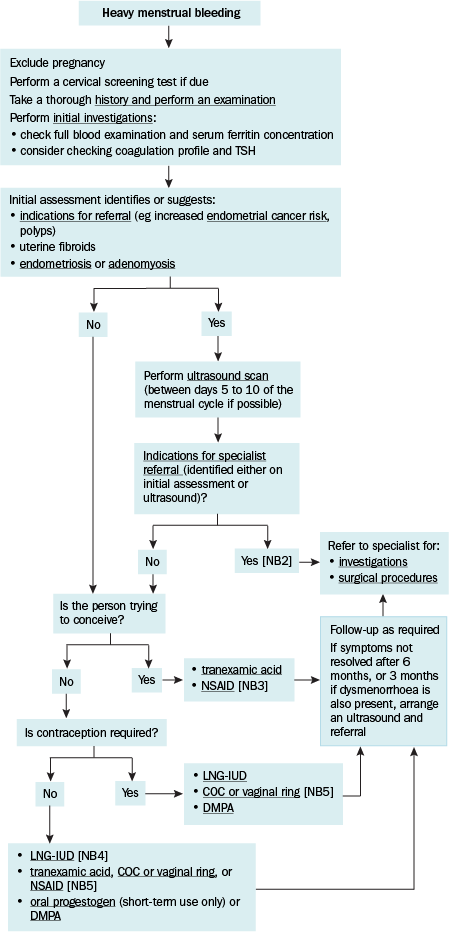Overview of assessment and management of heavy menstrual bleeding
Intermenstrual bleeding and postcoital bleeding require separate investigation and management; they should not be treated as for heavy menstrual bleeding.
[NB1]

COC = combined oral contraceptive; DMPA = depot medroxyprogesterone injection; LNG-IUD = levonorgestrel-releasing intrauterine contraceptive device; NSAID = nonsteroidal anti-inflammatory drug; TSH = thyroid stimulating hormone
NB1: Treatments are listed in order of preference.
NB2: While awaiting surgical review, offer options (excluding LNG-IUD as it may affect investigations) guided by the individual's wishes for fertility and contraception.
NB3: NSAIDs reduce dysmenorrhoea but are less effective at controlling blood loss than tranexamic acid.
NB4: LNG-IUD is first-line therapy even when contraception is not required because it is the most effective treatment for heavy menstrual bleeding.
NB5: The contraceptive vaginal ring is likely to be effective but there is less evidence for this than for COCs.
